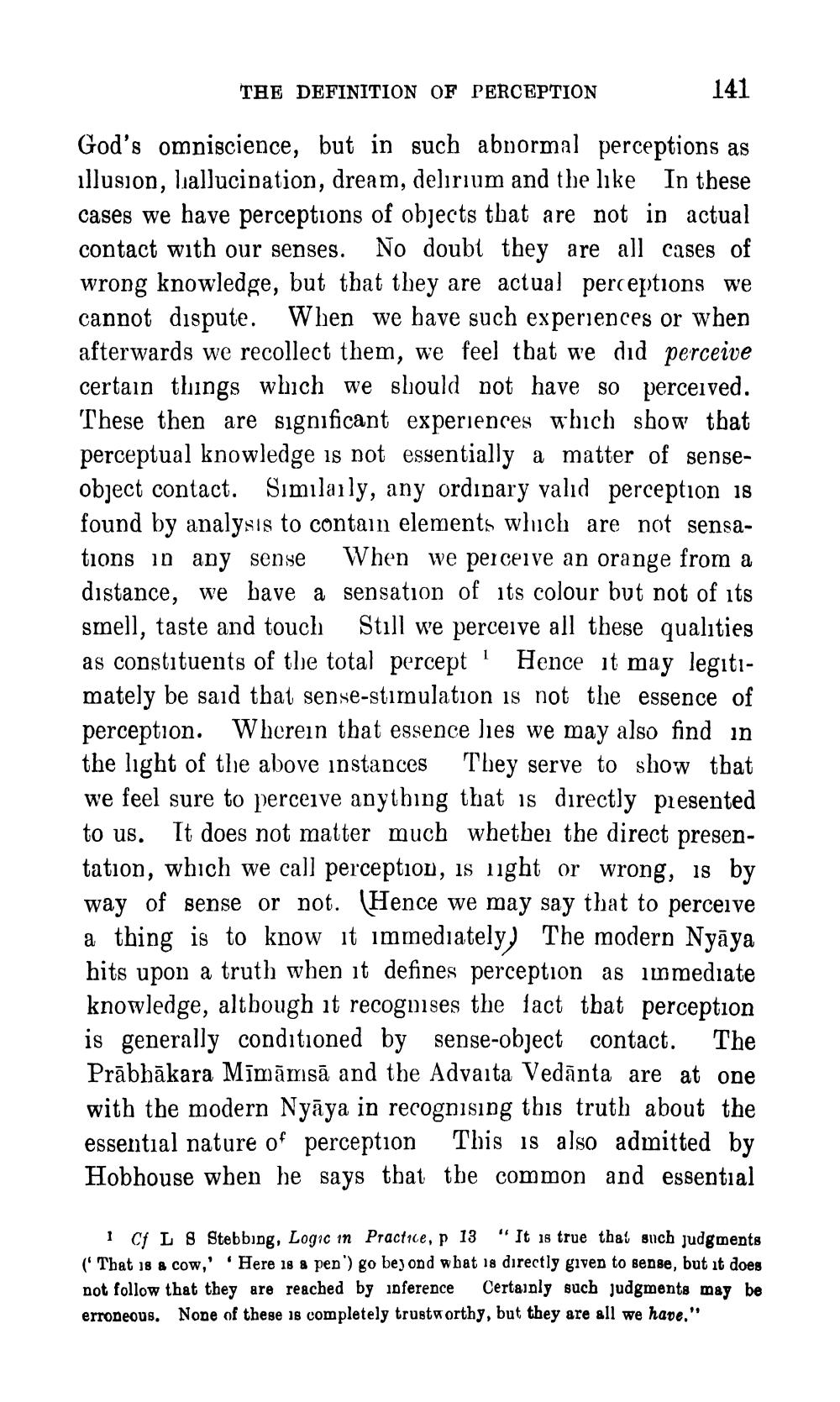________________
THE DEFINITION OF PERCEPTION
141
God's omniscience, but in such abnormal perceptions as illusion, liallucination, dream, delirium and the like In these cases we have perceptions of objects that are not in actual contact with our senses. No doubt they are all cases of wrong knowledge, but that they are actual perceptions we cannot dispute. When we have such experiences or when afterwards we recollect them, we feel that we did perceive certain things which we should not have so perceived. These then are significant experiences which show that perceptual knowledge is not essentially a matter of senseobject contact. Similarly, any ordinary valıd perception is found by analysis to contain elements wluch are not sensations in any sense When we perceive an orange from a distance, we have a sensation of its colour but not of its smell, taste and touch Still we perceive all these qualities as constituents of the total percept! Hence it may legitimately be said that sense-stimulation is not the essence of perception. Wherein that essence lies we may also find in the light of the above instances They serve to show that we feel sure to perceive anything that is directly piesented to us. It does not matter much whether the direct presentation, which we call perception, is right or wrong, is by way of sense or not. (Hence we may say that to perceive a thing is to know it immediately) The modern Nyāya hits upon a truth when it defines perception as immediate knowledge, although it recognises the fact that perception is generally conditioned by sense-object contact. The Prābhākara Mīmāmsā and the Advaita Vedānta are at one with the modern Nyāya in recognising this truth about the essential nature of perception This is also admitted by Hobhouse when he says that the common and essential
1 Cf L 8 Stebbing, Logic in Practice, p 13 " It is true that such judgments ("That 18 a cow,' 'Here 18 a pen') go beyond what 18 directly given to sense, but it does not follow that they are reached by inference Certainly such judgments may be erroneous. None of these is completely trustworthy, but they are all we have."




